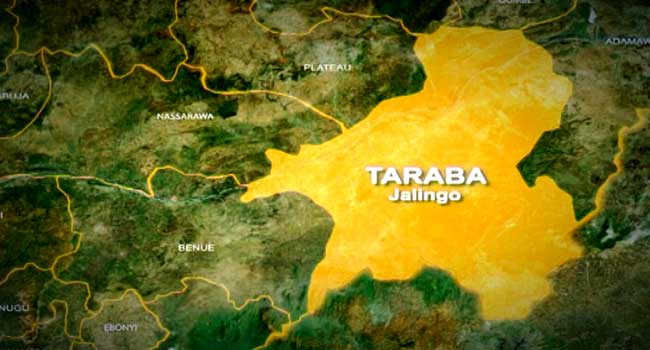Two Killed As Farmers, Herders Clash In Taraba

Two persons have been killed and several others injured following a clash between farmers and herders at Gwomu community in Karim Lamido Local Government Area of Taraba State.
The Chairman of the council, Markus Hamidu, confirmed the incident to Channels Television in an interview on Wednesday.
He said as the farmers approached their farm and discovered a herd of cattle grazing on their farm, they tried to make an inquiry on why the herders should do so.
In the process, he narrated, the herders attacked the farmers and killed one of them. In reprisal, the farmers also launched an attack, killing a herder.
READ ALSO: Senate Approves Buhari’s $16bn, €1bn External Borrowing Request
“A resident of Gwomu went to his farm to harvest his crops only to discover that the herders were grazing on his farm and in the process of trying to inquire why it should be so, a herder reacted by attacking the farmer and his relations and in the process, killed him,” said Hamidu.
“While retaliating, the farmers also succeeded in killing a herder. Two dead bodies were recovered from the scene.
“I have spoken with the Divisional Police Officer of Karim Lamido, we hired a vehicle to convey their (the victims’) remains, and thereafter the relations of both victims came to claim the corpses for burial.”
In a related development, bandits in their number have attacked Binnari community in Karim Lamido, leaving an unspecified number of people dead, with several houses destroyed.
According to the chairman of the council, security operatives have been mobilised to the scene of the incident which is a border community between Taraba and Plateau States.
He added, “Immediately we heard of the issue, we reported to the governor who in turn mobilised security operatives, including the Nigerian Army, who are on their way to the community as I speak to you.
“I believe that the situation will be under control very soon and normalcy will return to the affected areas.”







